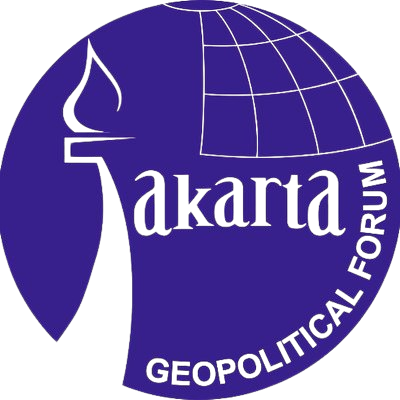STRATEGIC PATHWAYS FOR INDONESIA’S RENEWABLE ENERGY TRANSITION: GEOPOLITICAL POSITIONING, CRITICAL MINERALS, AND NET-ZERO AMBITIONS
DOI:
https://doi.org/10.55960/jgf.v9i1.295Keywords:
climate diplomacy, critical minerals, energy security, net-zero emissions, renewable energy transitionAbstract
Renewables are now playing a major role in shaping global energy security and climate diplomacy, as well as economic resilience. The energy transition of the world is accelerating under the influence of market changes, competition for critical resources and rapid technology development, the transition is presenting both opportunities and challenges. Through the lens of legislation, future electricity generation mix and the role of critical minerals, this study undertakes a qualitative content analysis to assess Indonesia's strategic position in the renewable energy transition. Indonesia has a significant comparative advantage since the nation has a plentiful nickel, cobalt, and potentially lithium reserves and abundant renewable resources. By 2050, under the projected energy scenarios, the contribution of solar power generation will rise to more than 30%, while the use of coal will have fallen dramatically to 5-10%. But the country has structural problems, that are geopolitically vulnerable supply chains, expensive storage, regulatory hurdles, reliance on foreign technology. Faster downstream mineral processing, local technical capacity R&D, regional energy integration, and regional technical partnerships of this kind need to take place in order to avoid these pitfalls. Indonesia can establish itself as the regional leader in sustainable energy and critical mineral supply, seize on the energy transition to cost-effectively work towards net zero emissions by 2045 with early strategic action.
Downloads
References
1. Mangla A. Geopolitics of Renewable Energy: Shaping the Global Power Landscape. Gyan Manag J. 2023;17(2):75–80.
2. Scholten D, Bazilian M, Overland I, Westphal K. The Geopolitics of Renewables: New board, New Game. Energy Policy. 2020;138(1):111059.
3. Supriyanto E. Jakarta Geopolitical Forum IX/2025. 2025 [cited 2025 Aug 10]. Strategic Pathways for Indonesia’s Renewable Energy Transition: Geopolitical Positioning, Critical Minerals, and Net-Zero Ambitions. Available from: https://www.youtube.com/watch?v=9VSWkAXLb4U&t=3424s
4. Supriyanto E. The Relevance of Renewable Energy in the Changing Global Geopolitics and Economics. Johor Bahru; 2025.
5. Nasution EB, Rolliansyah DA, Roring HA, Rino MR, Lanjari RNW. Mempromosikan Energi Terbarukan: Diplomasi Lingkungan Indonesia dalam Menanggulangi Perubahan Iklim. Verit J Ilm Hub Int (International Relations Journal). 2023;15(30):15–28.
6. He G, Lin J, Sifuentes F, Liu X, Abhyankar N, Phadke A. Rapid Cost Decrease of Renewables and Storage Accelerates the Decarbonization of China’s Power System. Nat Commun. 2020;11(1):2486.
7. Jacobs T. BP’s Energy Outlook Foresees Big Shift for Oil Demand. J Pet Technol. 2020 Oct 1;72(10):42–4.
8. Ikevuje AH, Kwakye JM, Ekechukwu DE, Ogundipe OB, Esiri AE. Optimizing the Energy Mix: Strategies for Reducing Energy Dependence. Open Access Res J Multidiscip Stud. 2024;8(1):94–104.
9. Wen J, Okolo CV, Ugwuoke IC, Kolani K. Research on Influencing Factors of Renewable Energy, Energy Efficiency, on Technological Innovation. Does Trade, Investment and Human Capital Development Matter? Energy Policy [Internet]. 2022;160(1):112718. Available from: https://www.sciencedirect.com/science/article/pii/S0301421521005838
10. Yang C, Song X. Assessing the Determinants of Renewable Energy and Energy Efficiency on Technological Innovation: Role of Human Capital Development and Investement. Environ Sci Pollut Res. 2023;30(13):39055–75.
11. Esquivias MA, Sugiharti L, Rohmawati H, Rojas O, Sethi N. Nexus between Technological Innovation, Renewable Energy, and Human Capital on the Environmental Sustainability in Emerging Asian Economies: A Panel Quantile Regression Approach. Vol. 15, Energies. 2022. p. 1–16.
12. Han S, Zhenghao M, Meilin L, Xiaohui Y, Xiaoxue W. Global Supply Sustainability Assessment of Critical Metals for Clean Energy Technology. Resour Policy. 2023;85(1):103994.
13. Dini Putri Saraswati, Shanti Darmastuti, Nurfarah Nidatya, Dinda Jasmine. Peran Strategis Indonesia dalam Geopolitik Transisi Energi di Bidang Sumber Daya Mineral. Khatulistiwa J Pendidik dan Sos Hum. 2025 May 19;5(2):599–615.
14. Pasaribu NT, Tama AA, Azzari MK, Gautama I. Green Arms Race: Indonesia’s Critical Minerals and its Sprint for Renewable Energy Sovereignty. Secur Intell Terror J. 2025 Mar 7;2(1):27–47.
15. Hassan Q, Viktor P, J. Al-Musawi T, Mahmood Ali B, Algburi S, Alzoubi HM, et al. The Renewable Energy Role in the Global Energy Transformations. Renew Energy Focus. 2024;48(1):100545.
16. Gajdzik B, Nagaj R, Wolniak R, Bałaga D, Žuromskaitė B, Grebski WW. Renewable Energy Share in European Industry: Analysis and Extrapolation of Trends in EU Countries. Vol. 17, Energies. 2024. p. 1–38.
17. Syabriyana M. Progress and Challenges of Renewable Energy Transition in Indonesia’s Energy Mix Towards Net Zero Emissions. JURUTERA - J Umum Tek Terap [Internet]. 2024 Dec 30;11(02):76–82. Available from: https://ejurnalunsam.id/index.php/jurutera/article/view/11141
18. Hussain S, Xuetong W, Maqbool R, Hussain M, Shahnawaz M. The Influence of Government Support, Organizational Innovativeness and Community Participation in Renewable Energy Project Success: A Case of Pakistan. Energy. 2022;239(1):122172.
19. Uzorka A, Olatide Olaniyan A, Olubusayo VF. Engaging Communities in Renewable Energy Projects For Sustainable Development. J Appl Sci Inf Comput. 2024;4(2):57–67.
20. Busch H, Radtke J, Islar M. Safe Havens for Energy Democracy? Analysing the Low-Carbon Transitions of Danish Energy Islands. Zeitschrift für Polit. 2023;33(2):227–51.
21. Krane J, Idel R. More Transitions, Less Risk: How Renewable Energy Reduces Risks from Mining, Trade and Political Dependence. Energy Res Soc Sci. 2021;82(1):102311.
22. Vakulchuk R, Overland I, Scholten D. Renewable Energy and Geopolitics: A Review. Renew Sustain Energy Rev [Internet]. 2020;122(1):109547. Available from: https://www.sciencedirect.com/science/article/pii/S1364032119307555
23. Islam MM, Sohag K, Mariev O. Geopolitical Risks and Mineral-Driven Renewable Energy Generation in China: A Decomposed Analysis. Resour Policy. 2023;80(1):103229.
24. Saunders M, Lewis P, Thornhill A. Research Methods for Business Students by Mark Saunders, Philip Lewis and Adrian Thornhill 8th edition. [Internet]. Research Methods For Business Students. 2015. 768 p. Available from: https://www.google.co.id/books/edition/Research_Methods_for_Business_Students/0DHFsgEACAAJ?hl=en
25. Krippendorff K. Content Analysis: An Introduction to Its Methodology [Internet]. SAGE Publications; 2018. 472 p. Available from: https://methods.sagepub.com/book/mono/content-analysis-4e/toc
Downloads
Published
Conference Proceedings Volume
Section
License
Copyright (c) 2025 Author

This work is licensed under a Creative Commons Attribution-ShareAlike 4.0 International License.










